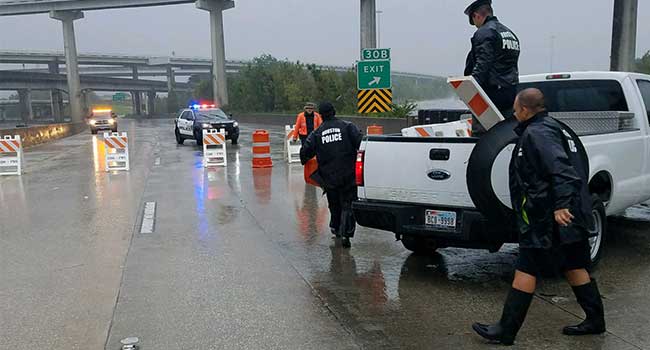
Environmental Impact of Harvey Still Unknown, Expected to be "Dire"
At best, experts said that the long-term environmental health consequences of the storm will be “dire.”
The full impact Hurricane (now, Tropical Storm) Harvey, which has been called the second worst natural disaster in U.S. history, will have on the country is still unknown. However, it will most definitely affect our community, infrastructure, economy and more in some way – including the environment.
This week, we reported that a chemical plant just north of Houston, Texas, exploded twice. The plant houses organic peroxides, used in making products like pharmaceuticals, plastic and construction materials, which burnt up when the flooded plant lost its refrigeration, causing explosions and intense fire.
While officials said the explosions are not expected to have any long-term environmental impact, the incident is just a sample of the environmental toll Harvey could leave on Texas and Louisiana.
At best, experts said that the long-term environmental health consequences of the storm will be “dire.”
The southeast region of Texas is currently submerged in murky waters, forcing more than 30,000 people out of their homes so far. Many of them do not realize, however, that the water could be full of contaminants, posing additional risks to residents.
"Flood water mixes with everything below it," Richard Bradley, M.D., chief of the division of emergency medical services and disaster medicine at McGovern Medical School at the University of Texas Health Science Center at Houston, said. "If it covers a field with pesticides, it picks up the pesticides. It can also carry animal waste from fields and forests."
The United States Environmental Protection Agency (EPA) said substances like raw sewage and other chemicals can get into the water, as storage containers of industrial chemicals or solvents can be disturbed or moved by surging flood waters.
Health and environmental experts recommend, due to potentially high levels of contamination, that people avoid intentional contact with flood water.
"Virtually all the waterways in Houston are impaired with bacteria, and that’s on a good day," Bruce Bodson of the Bayou City Waterkeeper, a group that advocates for clean water in Texas, said. "Instead of staying politely in the stream channels, these impaired waters are now in everybody’s house and backyard."
Exposure to contaminated flood water could lead to health issues like intestinal problems, upset stomach, headache and flu symptoms.
"The bacterial count in floodwater is extremely high," Bradley said. "The chance of getting a skin infection is really quite serious." Bradley added that exposure to chemicals can cause short term poisonings or increase a person's risk for long term health complications.
Health risks from the storm is a major concern right now, but Houston's industrial sector — which focuses on oil, gas and chemicals for the most part — has experts worried that flooding could lead to environmental disaster.
"Houston has over 500 industrial sites and in every home we've got some mix of solvents pesticides, oil," Barbara Sattler, a professor of public health at the University of San Francisco, told reporters. "Those are all part of this huge contamination pond that is Houston."
As the unprecedented natural disaster is still trying to be controlled, long-term implications it will have on the environment continue to unfold. Keep checking in with Environmental Protection magazine for the latest insights and updates on the state of Texas’ environment.